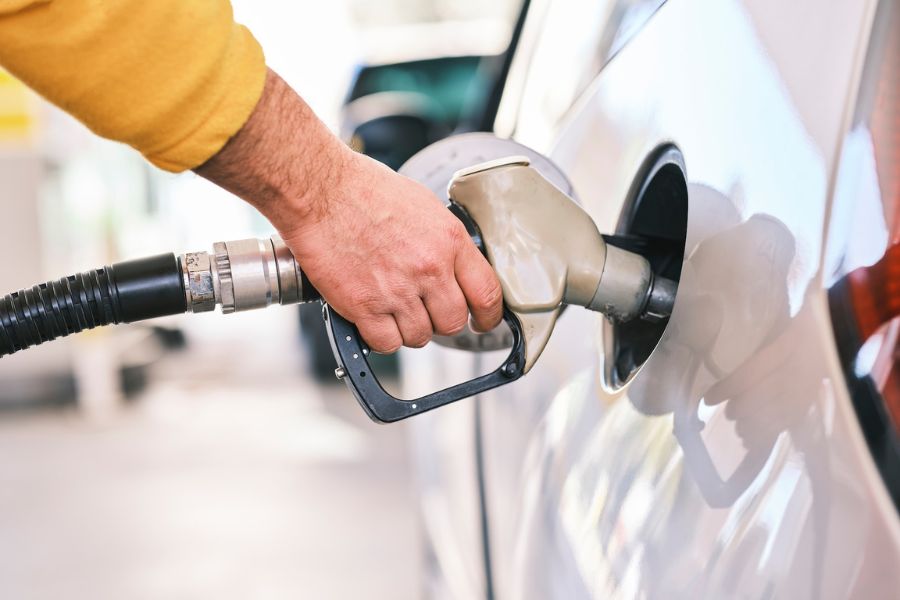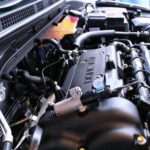Quick Navigation
Having a car is a must in the current situation. It’s because you need to be in a lot of places in a short amount of time, especially if you live in a big city.

Using public transportation could cost you a lot of time.
Your car could occasionally fail to start right away. After creating a lot of noise, it could take a while to start.
This is a cause for concern, but it does not necessarily mean that your car needs to be replaced.
Let’s have an overview of why your car takes a lot of time to start and what might be the possible solutions for that:
1. Fuel Problems
Your engine needs the following things in order to start efficiently:
- The proper amount of fuel,
- A spark at the proper moment, and
- Air to mix with the fuel
One of the leading causes of your car starting slow might be either that your car is out of fuel or it might have insufficient fuel pressure.
If the fuel system in your automobile starts to lose fuel over time, it will have impacts.
Like it may cause a fuel pressure regulator that has been broken or a fuel injector that tends to leak a lot of fuel.
Low fuel pressure indicates that there is probably a lot of air mixing with the fuel inside the combustion chamber.
This could ultimately lead to the engine overheating. Spark plugs might be the outcome of such an event.
Solution
If the problem is a probable lack of fuel you forgot, you can just get some gasoline to fill your gas tank.
Hopefully, this will eventually lead to the elimination of the problem as mentioned above, i.e., the car starting slow.
However, if the problem is still the same, you need to check your fuel pressure.
Although in newer models of most cars, there is a check engine light which might inform you about your fuel pressure, but just in case your car does not have a check engine light, then you need to get it checked and fixed.
Since a lower fuel pressure might be because of plenty of reasons, including
- A leaking fuel line
- A fuel injector leakage
- A fuel pressure regulator that might be broken
- A defective fuel pump.
Therefore, you cannot just overlook this issue and need to immediately get your car checked by a car technician.
2. Worn-Out Starters
If your starter is worn out, your car will also start slowly.
When you turn the key in your car, an electromagnet forces the starter gear to engage the flywheel teeth.
When the starter gear engages electrical contacts and slides into the flywheel, it spins the starter gear and powers the starter motor.
This makes the engine start. There are certain causes of high current flowing through the engine and the starter motor’s spinning motion.
The electrical contacts that power the starter motor may deteriorate over time.
It will become harder to start your car as the starter motor spins slower as these worn-out contacts transfer less and less power to it.
Solution
In order to solve the aforementioned problems, you need to get a new starter for your vehicle. Having a worn-out starter is a common problem.
You will not necessarily have to get your car checked by a car technician if this is the case. You can replace the starter by yourself too.
You just need to disconnect your battery from the car, locate the starter, loosen the bolts, and replace the old starter with a new one.
3. Temperature
The hardest time for an engine to start is during cold weather. Your engine’s oil thickens in the cold.
This makes it difficult to pump and increases the effort required to spin the engine.
Additionally, when it’s cold outside, the battery in your engine produces less electricity for the starter motor.
In turn, causing your engine to spin less quickly than it would on a warm day.
Finally, because a cold engine needs more fuel to start and run, it frequently takes a few extra quirts of fuel.
This fuel is taken from the injectors to get enough of it to actually allow combustion to occur for the first time.
Solution
It is not uncommon to face difficulties in starting the car in cold weather.
Hence, even in this case, you do not need to worry about getting your car checked by a car technician.
Simply turn off all of the car’s equipment, including the heater, radio, and lights, to get things started.
You must then turn the key while holding it for up to 10 seconds in the ignition. Sometimes, even this will not work.
In such a case, you must pause for about a minute before starting over.
4. Battery Problems
The battery is also in charge of supplying the engine’s ignition with energy.

A delayed start will come from the chemical process taking longer to produce electrical energy if the battery is worn out.
If the charging system breaks down, the battery will suffer the most. The car loses electricity before it can fully charge the battery.
Consequently, it takes numerous attempts to start it. Additionally, battery damage is the primary reason your car has trouble starting but runs smoothly.
The electrical system of the car is totally propelled by the battery’s strength and voltage.
If the battery keeps getting older, electrical systems like the starter motor and fuel pump won’t have enough power to operate.
Solution
If the issue persists, you should consider replacing the battery because overstressing will damage other components.
But you also need to keep in mind that the battery is installed correctly. Because most of the time, even a brand-new battery will still not be powering the car.
In this case, you need to check the battery installation. You need to make sure that cables are clamped down tightly and that they are in good shape.
An incorrectly installed battery will not supply power to the car sufficiently, leading to a slower car starting.
Takeaway
The takeaway from this article is that even though having troubles while starting your car might be a cause of worry for you, it does not mean that the first step you need to take is to buy a new car.
There can be multiple easily fixable causes that could help you fix your car in a few simple steps.
The best part is that these fixes won’t cost you a lot of money, and nor would they make you waste your precious time.
All you need to do is find a good mechanic who has knowledge about your car’s shortcomings and then also employ the knowledge you have gained from this article to figure out what noises are rattling inside your vehicle.
The insight of an expert mixed with your own understanding of your car is the best way to figure out the issues with your car so you can get them efficiently fixed without the need to spend a good amount of money on a new car.

With comprehensive experience in writing exceptional quality articles and blogs about cars and related stuff, Daniel is one of the finest bloggers and a hardcore car lover we have. He is an ASE certified technician with an across-the-board experience of 10 years in the industry. He could not help tinkering with anything he got his hands on from a young age, which led to his remarkable career in the automotive repair industry.
When he is not under any hood, you can find him on the water or in the woods to pursue his passion for hunting and fishing. He has been writing for multiple sectors and is a regular contributor to several publications.
He currently owns a Nissan 300ZX TT and a Pearl Yellow but plans to upgrade it to 550 HP. His favorites include the Koenigsegg CCX and Lamborghini Diablo 6.0 VT, but for him, the Ferrari 360 Spider is one of the sexiest cars that exists to date.
Being an avid world traveler, he has spent most of his time analyzing the automotive markets, latest technology, and local favorites to enhance his knowledge base. He is currently living in North Caroline, where it’s all about food and coffee and, of course, cars.







